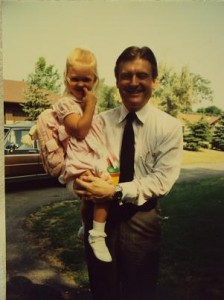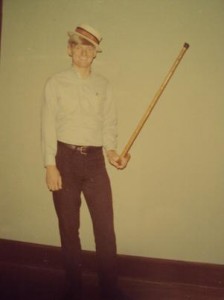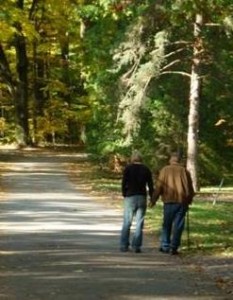While Birgitta and I were on our college search trip, Jack became a city pooch, bunking in the girls’ Chicago apartment with Louisa and relishing a banquet of tantalizing doggie smells in a new neighborhood. When Louisa called us to say she saw blood in Jack’s stool, my heart clutched; “Oh no! Not Jack, too!”
It’s been six months since Nate died, two weeks since Val died and a week since Merrilyn. Would Jack die now, too? He’s in his canine prime, only seven years old. We’ve often referred to him as “Barrel Boy” because of his thick mid-section. If he was sick, wouldn’t he be losing weight?
Two days before we knew of Nate’s all-over cancer, a test revealed blood in his stool. The doctor asked, “Have you recently eaten a big slab of rare beef?” Although Nate hadn’t, I hoped Jack had.
“Let’s not panic,” I told the girls after I’d already leaped to the worst-case-scenario. Although I didn’t feel angry with God, I did point a giant question mark in his direction. Could he possibly have in mind to take Jack away from us right now? Wouldn’t that be asking us to cope with more than we could handle?
We decided to wait until Jack produced again before taking action. When he did, the whole mess looked unhealthy and was laced with bright pink blood. But it was Sunday, which meant we’d have to use a pricey animal emergency room to get a professional opinion.
“If he’s sick,” I said, “one more day won’t hurt. Let’s wait till tomorrow and see what happens.”
Birgitta and I monitored the situation from Iowa and western Illinois via Louisa’s poop-reports, hearing the good news on the third day that his movements were blood-free. Jack has been himself since then, so we’re chalking it up to something he ate, maybe a sharp fish bone on the beach. Time may tell a different story, but for now, all is well.
How many crises are too many? Years ago our pastor’s wife said, “Tragedies usually come in sevens or threes.” I laughed, but she said, “No! I’m serious.” Since then I’ve noticed how misery often does arrive in clumps. People say, “Right now everything’s going wrong in my life!” That’s a clump.
I read yesterday of a woman who bargained with God. She prayed, “If you protect my children from all harm, I’ll be thankful every day for the other blessings in my life.” Her son got meningitis and had to be hospitalized, and she blamed God for failing to hold up his end of her bargain. When the infection caused more pain than the young boy could stand, doctors put him in a coma. When his body bruised all over as a result of broken blood vessels, they said he might die. When both of his legs had to be amputated to save his life, his mom railed against God in fury.
God is many things, but a bargainer he isn’t. There’s nothing we can offer him that he needs but doesn’t already have. My guess is that trying to manipulate him is a fast track to angry, because such arrogance is an assertion of power we don’t actually own. Bargaining assumes we are somehow on God’s level, a massive miscalculation.
I’m free to pour out my concerns to God, ask all the questions I want and express nervousness about clumped tragedies, but if I try to strike a deal, I’m in for a mess of trouble.
The bottom line is, if God chose to take Jack now, we could wonder why and feel sadness but would have to let God be God. He loves us, and I’m confident he wouldn’t let such a thing happen without an important reason. I also know that while we were going through it, we could count on him to share our sorrow. In any case, it’s his deal, not mine.
“The Lord helps the fallen and lifts those bent beneath their loads.” (Psalm 145:14)





